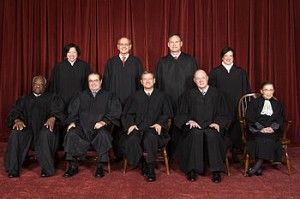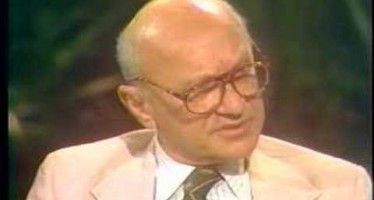S. Court splits on defending civil liberties
By Steven Greenhut
SACRAMENTO — The U.S. Supreme Court’s recent decisions regarding police powers were mixed, thus offering a reminder to civil libertarians that they cannot depend upon the high court to protect the public from unwarranted government intrusions.
“The U.S. Supreme Court handed police one victory and one loss on Tuesday,” reported National Public Radio. “In one decision, the justices limited the power of police to detain people who are away from their homes when police conduct a search. And in a second case, the justices ruled that drug-sniffing dogs don’t have to get every sniff right in order for a search to be valid.”
NPR’s ballgame metaphor hints at reality: Whenever the authorities win, the public loses some of its personal liberties. The recent police “loss” came in Bailey v. United States. Police had a warrant to search the apartment of a Long Island, N.Y., parolee, Chunon Bailey. Unaware of the impending search, Bailey drove away. Police followed him, stopped him three-quarters of a mile from his home and then detained him.
The court answered this simple question: Does a search warrant apply only to the location of the warrant or does it give police an open-ended document that allows them to detain and search people practically anywhere?
Justice Anthony Kennedy, writing for the majority in the 6-3 decision, concluded: “The categorical authority to detain incident to the execution of a search warrant must be limited to the immediate vicinity of the premises to be searched.” Kennedy concluded that a failure to put limits on a search warrant would “violate the usual rules for arrest based on probable cause.”
The majority opinion seems obvious and sensible. A search warrant authorizes police to search a particular place, not cast a net miles away from the location. The court’s odd minority coalition — liberal Stephen Breyer and conservatives Clarence Thomas and Samuel Alito — was disturbed that the decision did not provide police officers with a “bright yellow line.” They argued that definition of “immediate vicinity” was not understandable enough. Yet, that hazy line seems better than the bright one that Breyer, Thomas and Alito prefer — giving police unlimited power to detain a search-warrant subject anywhere.
Police dogs
In the police “victory,” the high court granted broad authority for using police dogs to sniff for contraband — overturning the Florida Supreme Court’s insistence that the dogs be properly trained to find the substances they are looking for.
In the Florida case, a police officer encountered a nervous driver, and then allowed a dog to sniff for drugs. As USA Today reported, “[T]he search didn’t turn up drugs that could be sniffed; instead, ingredients for manufacturing methamphetamine were found.”
The driver in this case turned out to have illegal chemicals, but, as a result of the court’s unanimous ruling, the rest of us can expect to increasingly be sniffed at by those menacing police dogs at more places. Sadly, Americans will get used to that intrusion, just as they have become accustomed to ubiquitous highway checkpoints, airport screenings and X-ray scanners.
On the biggest civil-liberty issue before the court this year, the justices did the right thing in a back-door way. In November, the court chose not to review a lower-court decision that blocked an Illinois eavesdropping law that could impose 15-year prison sentences on people who videotape on-duty police officers.
Many states require the consent of all parties before you tape a conversation. In Illinois, the law was applied even to authorities doing their job in public view and on the public dime. Throughout the country, police have been arresting people who record them now that the widespread use of cellphone cameras has occasionally caught cops misbehaving. The Huffington Post reported on an Illinois woman who, while complaining about an alleged sexual assault by a police officer, was arrested for videotaping officers who she said was trying to bully her into not filing a report.
An appeals court found such recordings to be protected by the First Amendment.
Given the high court’s mixed record on civil liberties, it’s probably best that it punted on the matter and allowed a strong lower-court decision to stand.
Soon enough, though, the court will need to wade more deeply into this area. It’s shocking how quickly, for instance, local law enforcement agencies are embracing aerial drones. A couple of cities have passed limits on drone use, but, as the New York Times reported, “[D]rones are becoming a darling of law enforcement authorities across the country.”
No wonder, given the availability of Department of Homeland Security grants and a strangely authoritarian mindset that has taken hold in our country.
Conservatives concerned about encroaching big government used to join forces at times with old-style civil-libertarian liberals to push back against the never-ending inertia of government agencies and officials always seeking more privileges and power. But that “leave us alone coalition” has evaporated.
The high court’s record on civil liberties could be worse, but I’d feel far better about the state of our freedoms if that coalition would rise again.
Steven Greenhut is vice president of journalism for the Franklin Center for Government and Public Integrity. [email protected].
Related Articles
Interview With A Candidate
I just finished an interesting interview with California’s Insurance Commissioner and candidate for Governor, Steve Poizner. Among the topics of
100 years of ‘Capitalism and Freedom’
July 31, 2012 By Katy Grimes As free marketeers celebrate famed Nobel Prize winning economist Milton Friedman’s 100 birthday today,
California push for coal divestment raises concerns
SACRAMENTO – Unlike the sellers of most other products or services, insurance companies receive payments from their customers in exchange





